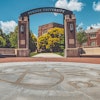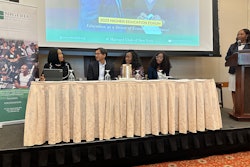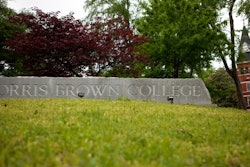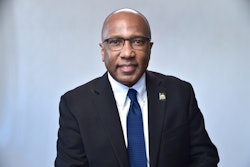 Becoming a Citizen of the World
Becoming a Citizen of the World
By Karen Jenkins
W.E.B. Du Bois, one of the leading intellectuals of the 20th century, was unwavering in his commitment to the equality of the colored peoples of the world. An intellectual giant and a life-long agitator, Du Bois devoted his life to ensuring that the majority of the people in the world, “those of color,” would break the shackles of colonialism and racial discrimination. It was in 1900 during the first meeting of the Pan-African Congress in London that Du Bois made his famous statement, “The problem of the 20th century is the problem of the color line — the relation of the darker to the lighter races of men in Asia, Africa, in America and the islands of the sea.”
Du Bois criticized the 1944 conference at Dumbarton Oaks because only a delegation from China represented non-Western people in discussions that led to the founding of the United Nations. Du Bois and his colleague, Raymond Logan of Howard University, openly criticized the new organization for ignoring human rights, particularly of minorities and indigenous people living under colonial subjugation.
In 1945, along with Mary McCloud Bethune and Walter White, Du Bois represented the NAACP at the United Nations’ founding conference in San Francisco. They not only demanded that the new world organization be representative of all peoples, but that there be an international bill of human rights and the dismantlement of colonial empires. Bethune, with prescience and courage beyond her male contemporaries, argued for the rights of women — of all races.
Current events remind us that concerns for equality in the United States remain tied to the struggle of those who are people of color, and women in other parts of the world. As educators in an international community of teachers and scholars, it matters whether and how we transmit to students an international connectedness with other oppressed peoples struggling for dignity.
Although the economic and military power of the United States is unrivaled, international education remains a marginal activity on this country’s campuses. There is a national lack of will among educators to commit to teaching other languages within the American academy and to help immigrants keep their first language while learning English.
A recent study by the Modern Language Association reported that only 8.2 percent of U.S. students are learning another language, with more than half enrolled in Spanish. U.S. students and educators are poorly educated in the starkest possible way because of their lack of fluency in other languages. Despite the global appeal of U.S. popular culture, few students in the United States are exposed in a meaningful way to international concepts, issues and people. The opportunity to push the walls of the classroom aside and interact with immigrants in the nearby community, learn from scholars born in other countries or study in another country remains out of reach for most students.
Du Bois died a Ghanaian citizen on Aug. 27, 1963, the eve of the March on Washington. He renounced his U.S. citizenship and, at the invitation of Kwame Nkrumah, the hero of African nationalism, spent his last years in Ghana. To his death, Du Bois remained a citizen of the world and declared his solidarity with the majority — the colored peoples in “Asia, Africa, in America and the islands of the sea.”
— Karen Jenkins is president of Brethren Colleges Abroad.
© Copyright 2005 by DiverseEducation.com





















